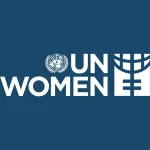
By Mudathir Adesanya
In Nigeria, a country where religion plays a significant role in the lives of its diverse population, a Shariah-compliant health insurance scheme for the segment with bias for Halal products and services, is long overdue.
With a sizable Muslim population, it is crucial to offer healthcare options that align with Islamic principles and cater to the religious sensitivities of individuals.
While Nigeria struggles to achieve reasonable health insurance coverage, economic pains of perpetual out-of-pocket health spendings is too debilitating to ignore at a time individuals’ disposable incomes are being eroded by cost inflation. Medical expenses outside the insurance scheme are no longer sustainable in Nigeria or anywhere else.
Health insurance is a vital component of any robust healthcare system, providing financial protection and access to quality medical services. However, Muslims in Nigeria are faced with the nonavailability of Shariah-compliant health schemes, deepening the challenges of achieving universal health coverage.
Conventional health insurance schemes are interest-based businesses with uncertainty (Gharar). This creates a barrier for Muslims who wish to protect themselves and their families through health insurance while remaining faithful to their religious dictates.
Section 33 of the Nigerian Constitution guarantees the right to life. This provision implies that every individual has the right to enjoy the highest attainable standard of physical and mental health, as good health is essential for the preservation of life.
A full-fledged or window Shariah-compliant HMO would help protect and promote the fundamental right to life as enshrined in the Constitution.
Further, the National Health Insurance Scheme (NHIS), the government agency which regulates HMO, could start engaging key industry players and interested investors towards formulation of regulatory guidelines for the establishment of Shariah-compliant health insurance firms in the country.
Implementing a Shariah-compliant health insurance scheme within the NHIS requires collaboration between Islamic finance scholars, healthcare professionals, and regulatory bodies.
Islamic scholars can provide guidance on developing models that align with Shariah principles, while healthcare professionals can contribute their expertise in designing healthcare packages that meet the specific needs of the Muslim population. The NHIS, as the national healthcare financing agency, plays a crucial role in creating a supportive legal and operational framework.
The benefits of a Shariah-compliant health insurance scheme within the NHIS will extend beyond religious sensitivities. It would promote inclusivity, social cohesion, and equitable access to healthcare services for all segments of the society. By accommodating the healthcare needs of the Muslim population, NHIS would demonstrate its commitment to religious freedom and ensure that all citizens can avail themselves of healthcare services without compromising their beliefs.
By offering an alternative that aligns with Islamic principles and upholds the right to life as enshrined in Section 33 of the Constitution, the government and the NHIS would promote financial protection and equitable access to healthcare services.
It is crucial for relevant stakeholders, including Islamic scholars, healthcare professionals, and regulatory bodies to collaborate and work towards developing a comprehensive and inclusive Shariah-compliant health insurance system that caters to the religious sensitivities of Nigeria’s diverse population.
Mudathir Adesanya is Managing Director/CEO of IFING Media Ltd.









